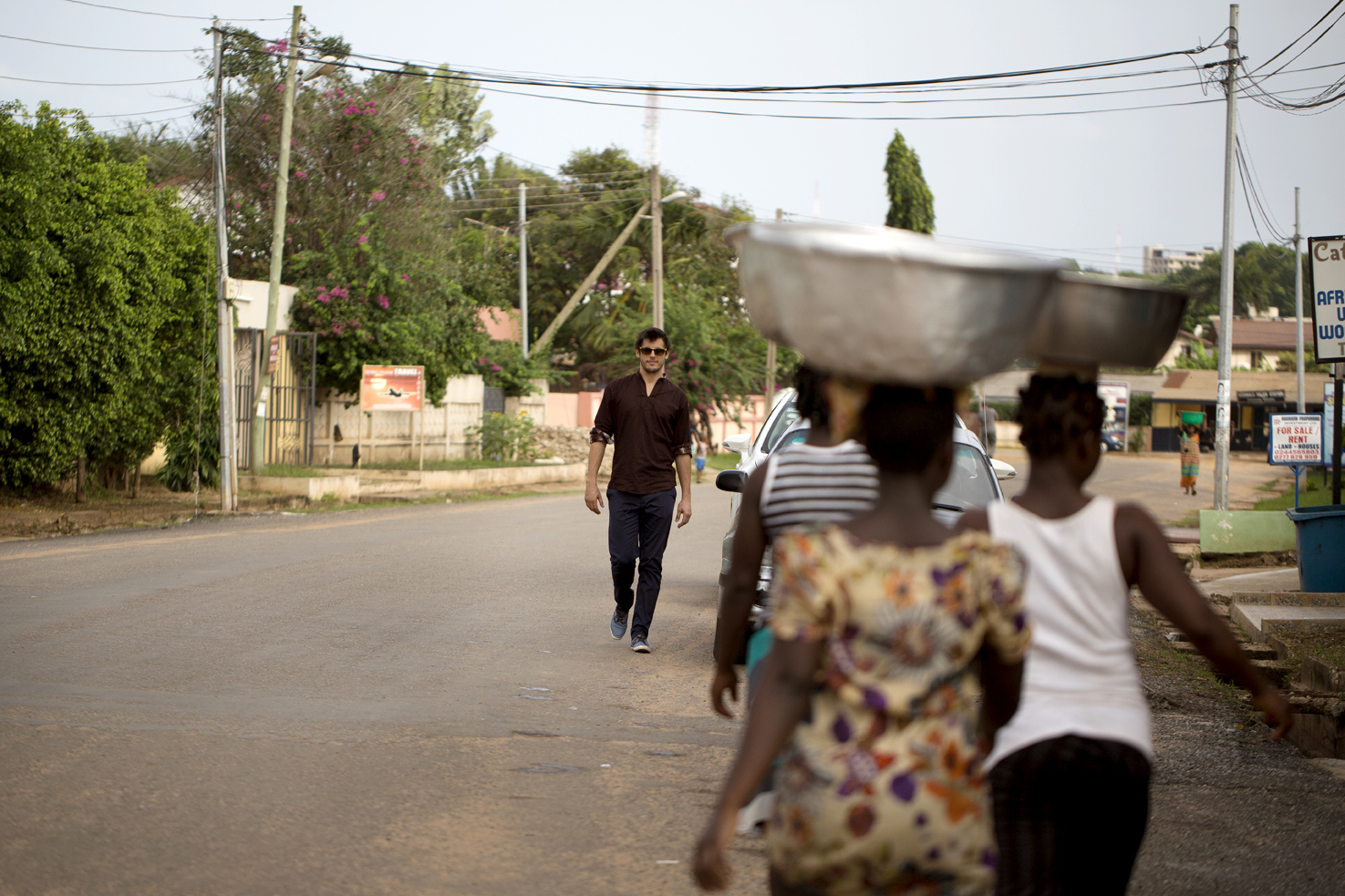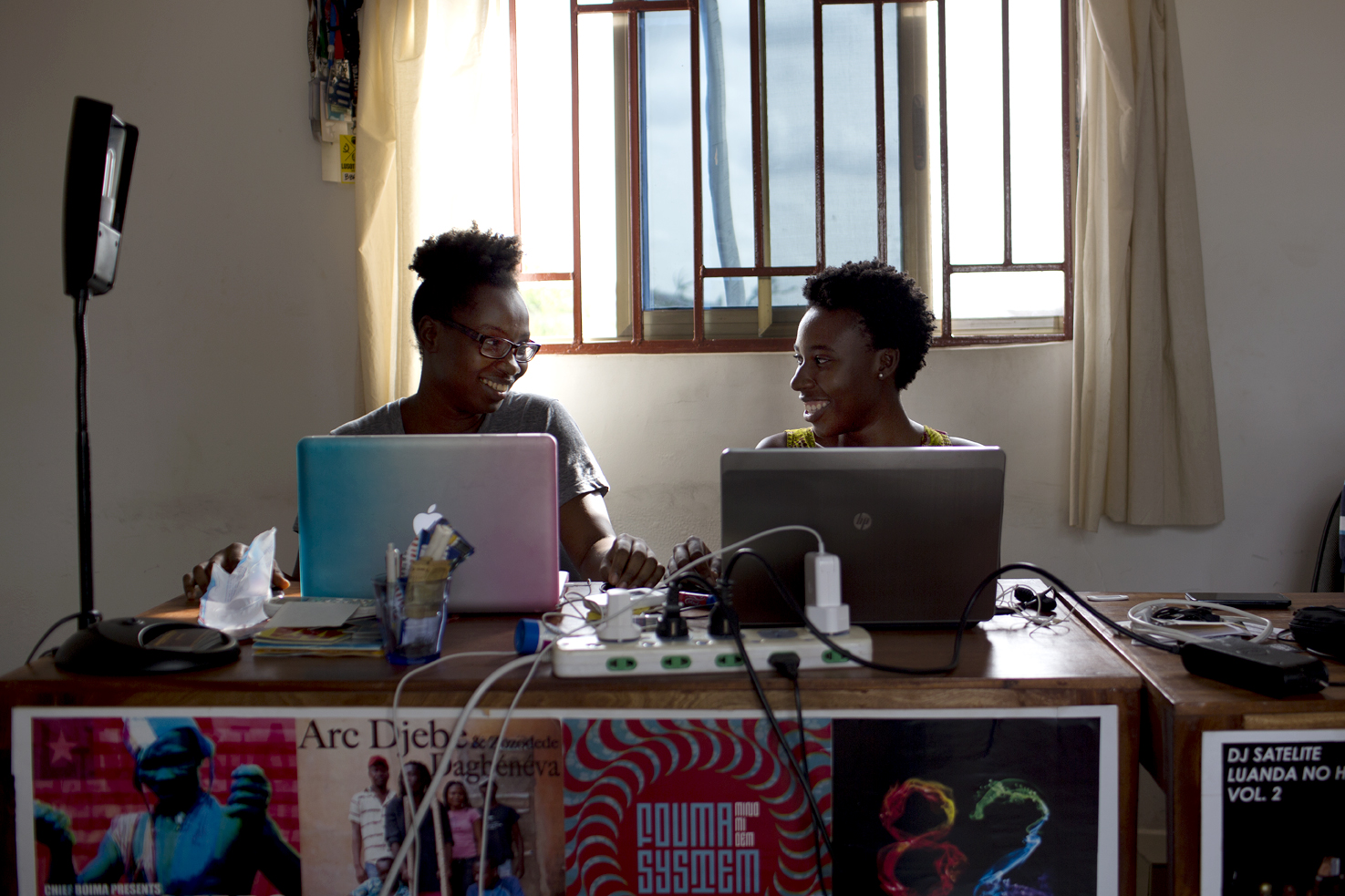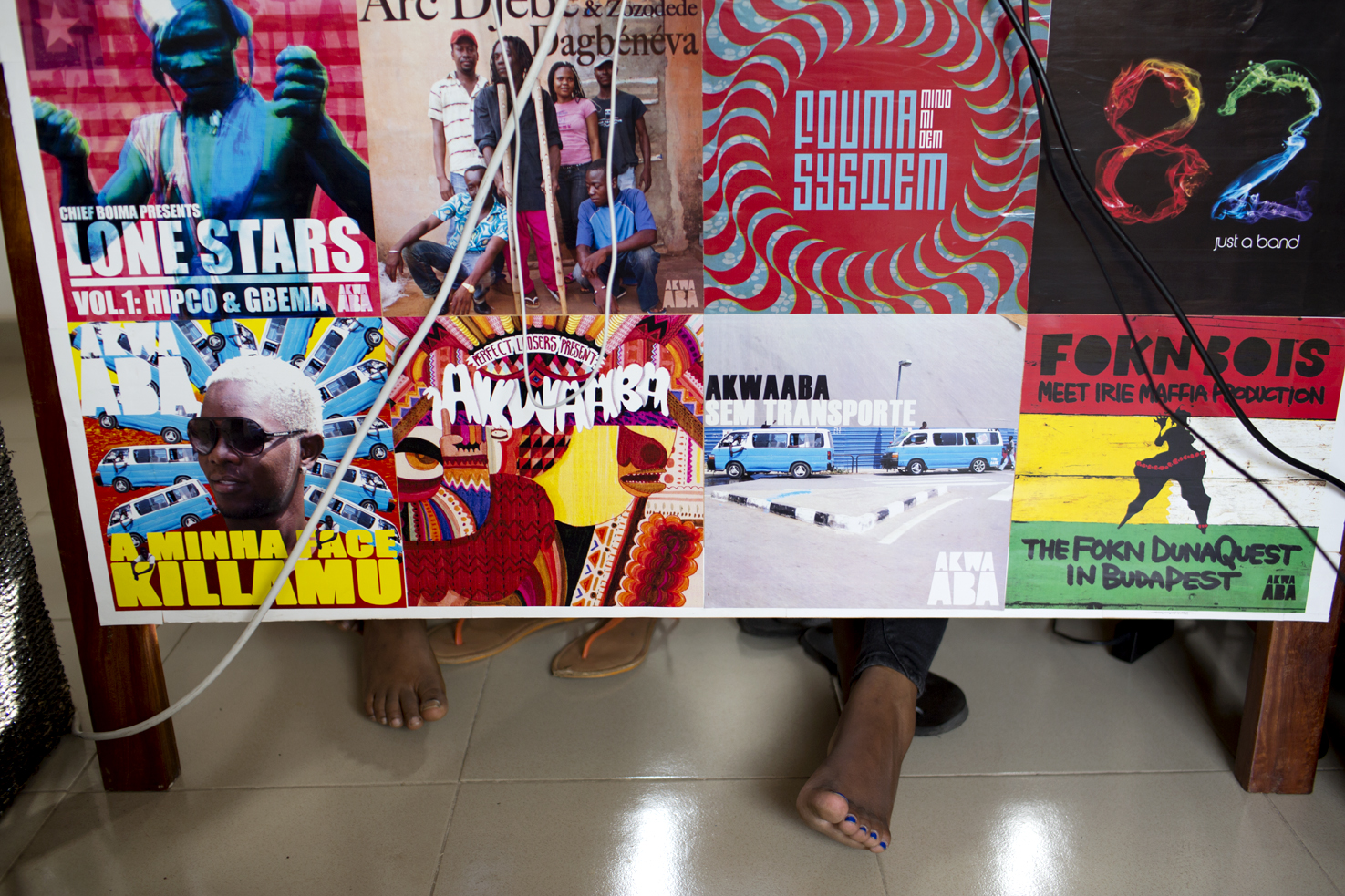If he’s not in his studio, you’ll probably find the founder of Akwaaba Music, Benjamin Lebrave, DJing at the Republic Bar, just off Oxford Street in Accra.
‘It does not have the biggest sound system. It doesn’t have the biggest audience. But I feel it’s one of the places I can be the most free to play whatever I want.’
And Lebrave’s tastes are nothing if not eclectic. A few years ago, while working in digital distribution and moonlighting as a DJ, the half-French half-American music lover would furiously try and find new sounds. And when he discovered Ghanaian beats, he was hooked. The only problem being that he couldn’t find much online, either on YouTube, P2P sites or via streaming. If he wanted to listen to more, he’d have to make his way to the source.
No matter if it’s countries or genres, Lebrave brazenly flouts boundaries at Akwaaba Music.
It was while visiting Ghana that the idea for Akwaaba Music was born. A digital record label that would distribute African sounds. Good idea, right? Lebrave certainly thought so. Two years later, in 2011, he quit his job and moved to Accra.
But he doesn’t just limit his set at Republic to the west coast: ‘What I like to play is music from all over the continent. I really focus on African music but not just Ghanaian music. In Ghana you tend to hear music from Ghana, Nigeria and the US. But I try to bring in Francophone music, a lot of Lusophone, especially Angolan music, South African house etc.’
And his schedule is just as international as his soundtrack. ‘I’m leaving on Monday to tour Europe. I’m going to France, Belgium and Germany. I also play in North America. And when I’m lucky,’ He jokes, ‘I play in Africa. I played in Dakar a few months ago.’
‘Fewer artists identify as Hiplife. People prefer to talk about the dances: Azonto, Akaida or they’ll use Afrobeat, Afropop or more general terms.’
No matter if it’s countries or genres, Lebrave brazenly flouts boundaries at Akwaaba Music. ‘We’re about to release a fantastic collaboration between Burkinabè rapper Art Melody and Ghanaian Kologo musician and Frafra singer Stevo Atambire. We take hip hop into local territory, using traditional melodies common to northern Ghana and Burkina Faso. This creates a bridge between two countries who rarely share much besides their common border.We’re also in the process of producing a hiplife/techno hybrid; it’ll be more minimal beats with the same distinctly Ghanaian vibe.’
But it’s Hiplife that Akwaaba music is most closely associated with, a sound which is now hitting the centre lane of the mainstream. ‘Hiplife is a few different things,’ Lebrave explains, ‘When the term was coined, it meant hip hop sung in local languages… by Reggie Rockstone and the first generation. Pretty quickly it came to mean a genre that incorporates hip hop but mixes it with more local music. So hip hop meets highlife. It was more danceable stuff, more melodic stuff, not only rapping but singing as well.’ That death knell of cool, the New York Times, wrote about it this summer. But Ghana, and Lebrave, are already on to the next thing:
‘I feel that nowadays it’s a term that people are using a bit less in Ghana. Fewer artists identify as Hiplife. People prefer to talk about the dances: Azonto, Akaida or they’ll use Afrobeat, Afropop or more general terms.’
He’s been with up-and-comers who are now making waves like Wanlov the Kubolor and FOKN Bois since the beginning.
Since starting Akwaaba, Lebrave has worked with some of the biggest names in Afrobeat: E.L., Joey B, D Black, Ruff-N-Smooth. ‘I released EL’s album in 2012 and Joey B’s singles since last year. With both of them, I’m mainly focusing on distribution.’
His advice for aspiring artists who want to promote themselves is simple: ‘Start small. Identify the people who are the most likely to help you grow. Trace TV won’t feature your video if nobody has ever heard of you; you have to build a presence step by step, before it even makes sense to contact such big players. Start around you. Start with approachable sites, bloggers, radios, DJs. Grow your audience, be active online and offline, meet people, network, reach out, be persistent but never pushy.’
And this seems to work. He’s been with up-and-comers who are now making waves like Wanlov the Kubolor and FOKN Bois since the beginning. Even in more trying circumstances: ‘I had malaria in Stockholm the day I was supposed to DJ for the FOKN Bois… wasn’t so fun but definitely unforgettable… and I remember the look on their faces when we arrived at Fusion festival, the food was so mediocre, I think they ate nothing but seeds and fruit for three days!’
‘I met Wanlov in 2009 at WOMEX; stayed with him for a few weeks in 2010; released the Dunaquest in Budapest album with him and M3nsa in 2011. I put their first European tour together in 2012. Both Wanlov and M3nsa are extremely active with their careers, and quite versatile self-promoters, but I think Akwaaba really helped establish them beyond Ghana and the UK. We had a great impromptu collaboration between Joey B and Wanlov last year, when we performed along with the Akwaaba Sound System band.’
And it is Wanlov da Kubolor – that skirt-wearing, barefoot joker – is the artist who seems to be speaking to Lebrave the most at the moment: ‘There are serious problems with bad governance in Ghana and he’s one of the few to speak up in a way that seems ironic, sarcastic and funny but I find it constructive.’
Lebrave’s top five fresh tracks he’s hitting repeat on
1. Produced by DJ Breezy, man of the hour in Ghana, now spilling over to Nigeria:
https://soundcloud.com/africagroove/patoranking-x-wande-coal-my-woman-my-everything
2. Dope production by DJ Juls:
3. Reminiscent of the much more popular song Ojuelegba by Wizkid, similar super laid-back vibe:
4. Another smooth banger by Juls. Doesn’t hurt to have M3nsa and Pappy Kojo’s impeccable raps too:
https://soundcloud.com/julsofficialmusic/gidigidi
5. Beautiful highlife-based beat by Killbeatz, another huge producer in Ghana for the past few years:



